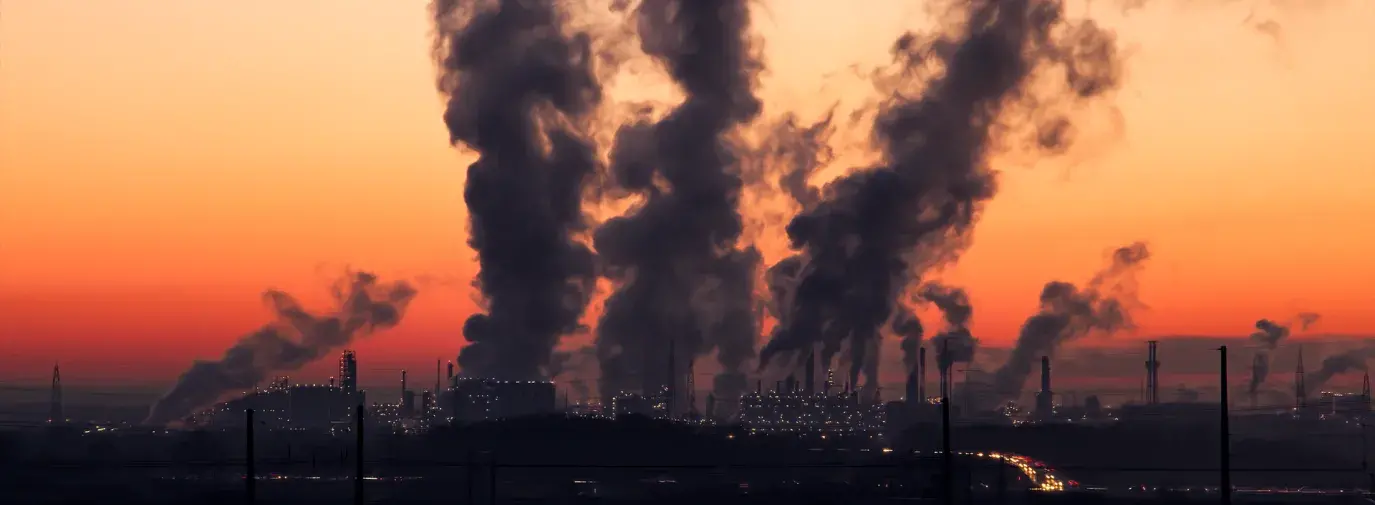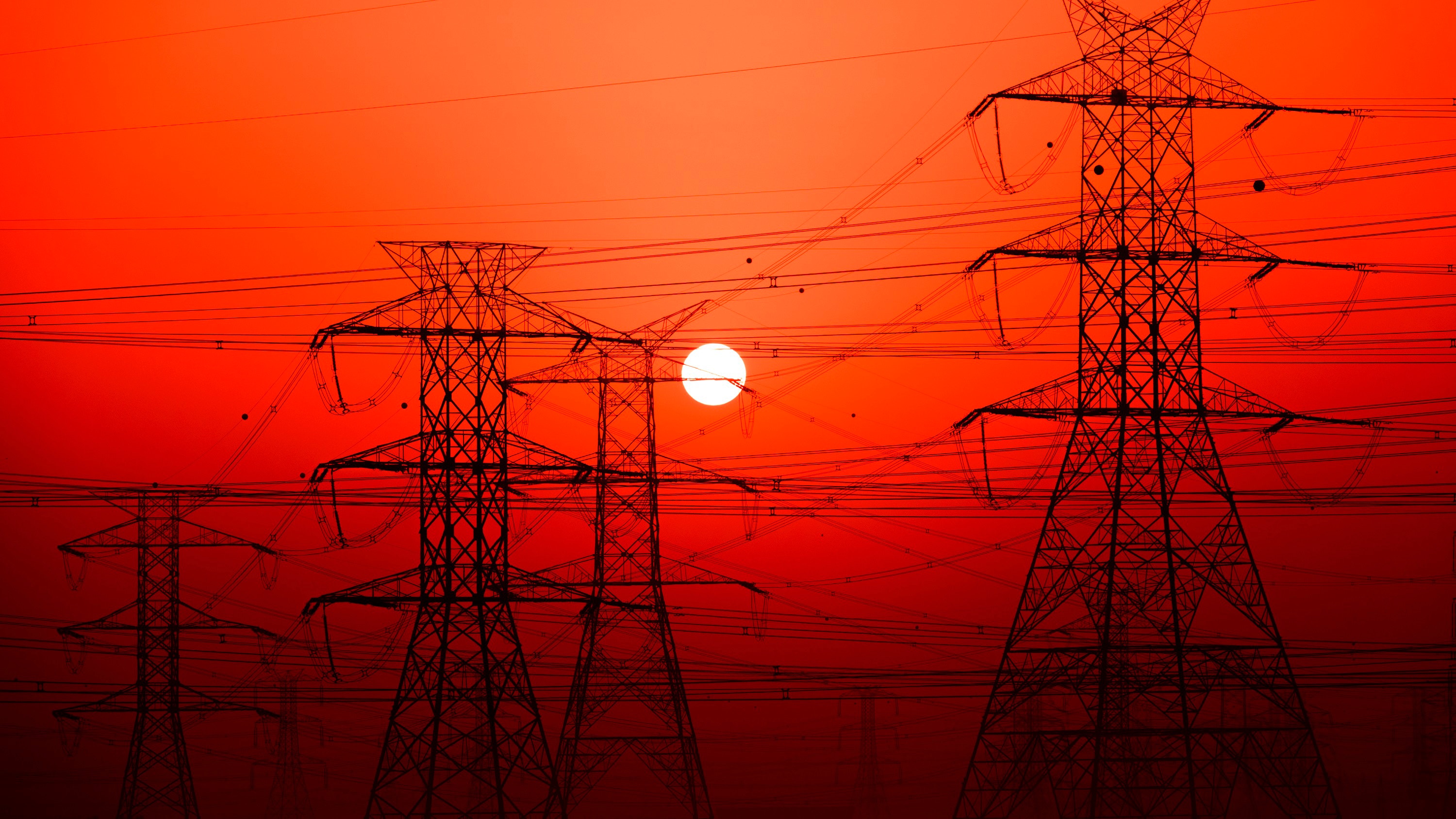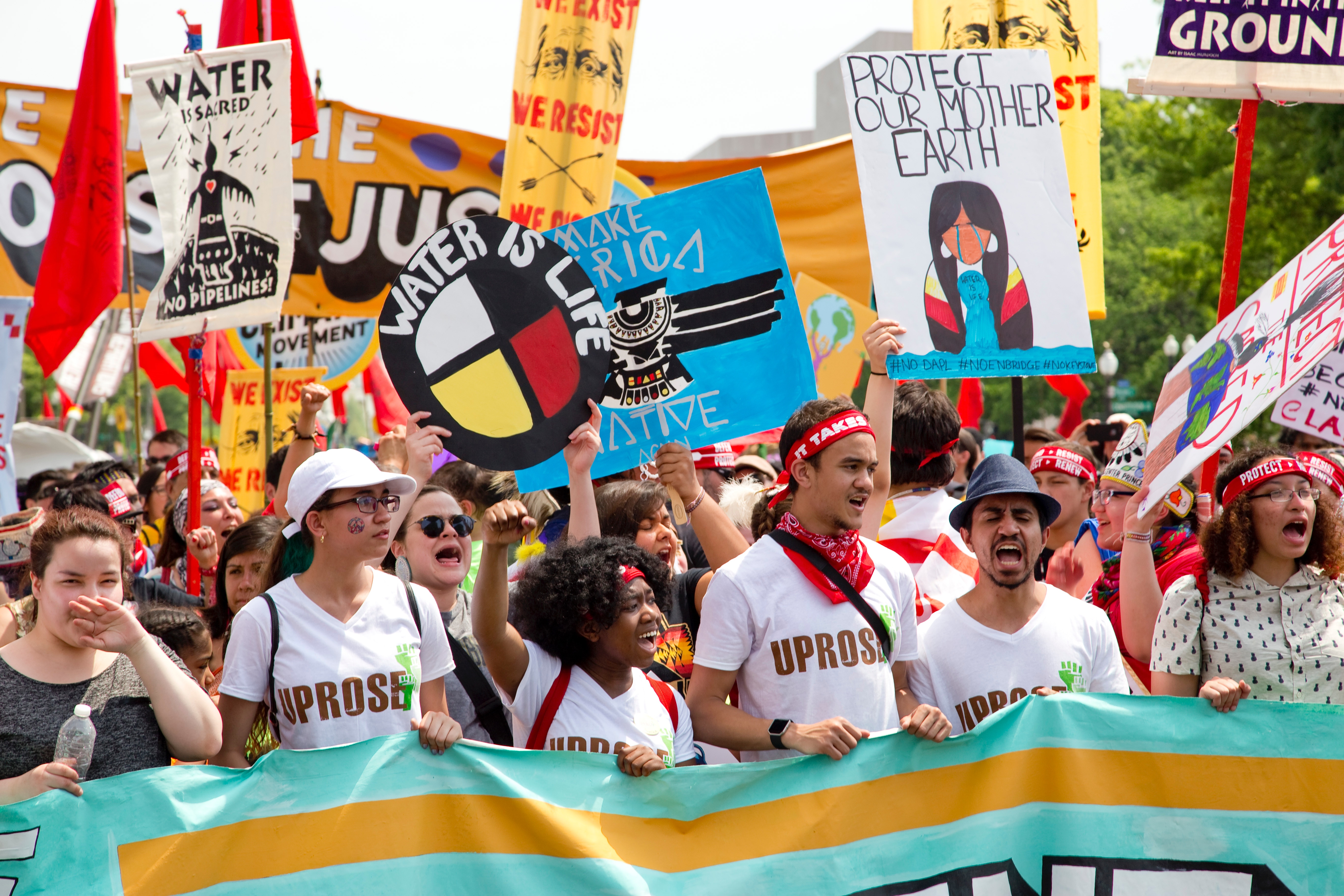
By Ayate Temsamani, Green America's Climate Fellow
A few years ago, a young boy named Kevin Brown made national news after pollution from an industrial factory near his home triggered repeated asthma attacks. Kevin was going to emergency rooms week after week. His mother, Lana Brown, said, "I would look outside and I would see him just leaning on a tree or leaning over a pole, gasping, gasping, trying to get some breath so he could go back to playing.” The Chicago neighborhood where Kevin grew up has some of the country’s most polluted air. Across the country many industrial facilities, including fossil fuel powered generators, are located in lower-income communities. Residents often seek help from activist groups and non-profit organizations to strengthen their voice and fight back against polluters, but these environmental justice groups are often under-resourced and can’t fight all the companies that poison low-income communities.
Unfortunately, Kevin's case is not uncommon in low-income communities of color, specifically in Black and Latino neighborhoods where the asthma rate is extremely high. In the United States, asthma is the most prevalent chronic disease of childhood as it affects more than 6 million or 8.3% of the United States’ children. However, Black children are disproportionately affected compared to white children, as Black children are “79% more likely to live in neighborhoods where industrial pollution is suspected of posing the greatest health danger.”
Impacts from fossil fuel plants are suspected contributing factors to higher mortality rates in these communities as they are more exposed to pollution. According to the National Association for the Advancement of Colored People (NAACP) report, “68% of African Americans live near a coal-fired power plant”. Latinos are also disproportionately exposed to these toxic chemicals. A 2016 report from the Clean Air Task Force states that “the air in many Latino communities violates air quality standards intended to protect human health” and Latino children are more likely to die from an asthma attack than white children.
Fortunately, there are environmental justice solutions ready to be implemented to protect the planet and the most vulnerable communities burdened with fossil fuel effects. Let’s explore the problems, solutions, and how you can get involved.

How Fossil Fuels Damage Communities
The combustion of fossil fuels releases fine particles and ground-level ozone, which are harmful pollutants. Carbon dioxide and other gases emitted in this process amplify the greenhouse effect and spur climate change. The combustion of oil and coal releases nitrogen oxides, sulfur and carbon as well as hydrocarbons, lead, soot and heavy minerals. Surface mining of coal through destructive practices (e.g. strip mining and mountaintop removal) is responsible for releasing toxic chemicals including heavy metals and arsenic. These chemicals pollute waterways, contaminating community groundwater. As for natural gas extraction, and in particular fracking for natural gas, the chemicals used are hazardous, and are usually stored in open-air waste pits, releasing toxins in the air. These toxic chemicals affect human health causing not only physiological damages to the lungs, kidneys and blood streams but also damages to the brain as well.
Particles from burning fossil fuels may exist in the air for several weeks at a time and can travel miles. When we breathe, toxic particles invade the lungs and get carried into the bloodstream. The World Health Organization estimates that worldwide 1.6 million people die from lung cancer each year. In the US, heart disease, stroke, cancer and respiratory illnesses are among the leading causes of deaths, and toxins released through the combustion of coal are directly linked to these diseases. A United Nations organization has calculated that global climate change is already the cause of 400,000 premature deaths every single year; recent reports show that pollution kills three times as many people as AIDs, tuberculosis, and malaria combined. These health risks extend from our heavy reliance on fossil fuels. In 2017, 31.8% of energy came from natural gas, 28% from petroleum and 17.8% from coal, whereas energy produced by renewable energy was only 12.7%. Major users of electricity like the telecoms sector should be purchasing and demanding clean energy sources.

The Role of the Telecom Industry in Environmental Justice
The burning of fossil fuels presents a significant environmental justice issue: harming public health and contributing to premature deaths in our country. Switching to renewable energies would decrease air pollution from energy sources and the risks associated with it. In identifying sectors which lag in clean energy use, the telecommunications industry stands out as a large entity with significant influence on the climate with its use of over 3 million megawatt hours (MWh) of energy usage, mostly from fossil fuels. This industry emits 16 million tons of CO2 every year from its heavy reliance on dirty energy.
AT&T and Verizon, the two leading US companies in the industry, have a combined electricity usage that could power 2.6 million homes for a year. Most of the sector’s energy use goes to maintain networks and data centers. The telecommunications industry relies heavily on these centers and access networks running 24/7 so we can stay connected. That connectivity comes at a high environmental and human health cost as data centers and networks serving the telecom industry are powered by fossil fuels.
One of the effects of climate change is an increase of intensified storms that pose severe threat to human life and widespread devastation. Natural disasters leave in their wake destroyed communities and costly recovery efforts that are both labor and resource intensive. Telecom companies, particularly Verizon, call attention to the assistance they lend to impacted areas. These efforts are commendable, however when companies fail to take direct action to reduce their own greenhouse gas emissions, they are neglecting the most impactful way they can curb climate change.
Consumer interest and pressure urging these telecom giants to move to renewable energy sources is having an impact. In just the past year, T-Mobile committed to 100% renewable energy and AT&T has made commitments to purchase wind power that equal about 30% of its energy use. But, Verizon, which is the largest player in the industry, only gets 2% of its energy from renewable sources, and is only committed to doubling that, to a paltry 4%, over the next few years. And Sprint derives less than 1% of its energy from renewables. As the demand for energy from telecoms grows, they need to do more. All telecom companies in the US need to commit to reaching 100% renewable energy by 2025.
Environmental Justice: Pushing for Equitable Solutions
The long-term consequences of pouring greenhouse gas emissions and other pollutants into our atmosphere are dire, and there are also immediate impacts, which often afflict the poorest people worldwide. Studies have shown that the effects of climate change affect communities differently, and that minorities and marginalized groups are the most affected. The question of environmental justice then becomes that of the distribution (among individuals, social groups, countries) of the burdens related to environmental policies (risk prevention, changes in practices, restoration of degraded environments). Who will pay for the environmental degradation? and how? The burden is usually felt by the most vulnerable, known as "frontline communities". We could prevent 7,000 deaths a year caused by heart disease just by cutting pollution in communities of color to the same level of white neighborhoods. There are many climate justice organizations including Hip Hop Caucus, California Latino Water Coalition, Center of Race Poverty and the Environment, Indigenous Environmental Network, among others fighting daily for equal protection against climate change.
Fossil fuel projects impact communities nationwide, including both “Red” and “Blue” states. This is a problem that cuts across political party lines. In 2016, the state of Maryland issued a permit for the construction of a new power plant in Brandywine, rural southern Prince George’s county, which is a majority Black community. The Panda Mattawoman power plant would be a new gas-fired power plant expected to increase the already high level of air pollution in the area, where a total of five power plants will be operating by 2019. According to the American Lung Association, Prince George’s county violates air quality standards, mostly due to the highly polluted air in Brandywine, where power plants are clustered. A coalition of environmental groups and activists are outraged by the state’s decision to permit another power plant to open near their homes. Residents of Brandywine filed a federal civil right complaint as they believe state legislators discriminate against their community, where 72% of residents are Black. Kamita Gray, president of the BTB Neighborhood Coalition stated, “we deserve a healthy quality of life, and we don’t deserve to be disproportionately and adversely impacted in our daily lives as it pertains to air quality, traffic and noise.”
Legislators of Prince George’s county firmly believe that the new power plant will raise millions in tax revenues and will be economically beneficial for the state, ignoring the community's concerns altogether. The neighborhood coalition has taken action refusing to be the victims of another fossil fuel power plant’s hazard, and has partnered with Earthjustice to assess the impacts the project will have on their community. Most importantly, the power plants are clustered around an elementary school that suffers from the pollution and is surrounded by heavy black smoke. Brandywine’s residents count on the members of the BTB Neighborhood Coalition and nonprofits mainly because the town is not incorporated in Prince George's county and thus, doesn’t have a mayor to advocate for the issue. The situation in Brandywine caught the attention of Thriving Earth Exchange, a non-profit organization that has been helping Kamita Gray and the rest of the coalition collect scientific data on the town’ air quality. Without rigorous scientific data, the EPA and the state won’t consider even looking at the issue.
Despite the hard work of Kamita Gray and the rest of the BTB Neighborhood Coalition and the help of these nonprofit organizations, lack of funding remains a major roadblock and the ongoing fight between the residents and the power plants is far from ending. Fred Tutman, the head of another nonprofit advocating for Brandywine, says this is an environmental injustice on a vulnerable community that lacks power, stating “by power I don't mean electricity, I mean political power. I mean economic power”. Community-led efforts to block or shut down polluting power plants result in varying outcomes. Unfortunately, these efforts are not always successful in blocking a plant however they can spur companies to retrofit facilities to limit pollutants. But, the health of vulnerable communities should not be compromised in order for us to keep watching our favorite movies or sharing memes.
The fight over the Brandywine power plant is just one example of the many low-income communities nationwide that are fighting the impacts of coal mining, gas fracking, power plants, and pipelines that threaten their air, water and lives. These are the same communities that are often last to benefit from clean energy sources – such as solar and wind – and the well-paying jobs that come with clean energy.

How You Can Help
Green America urges large corporations to do their part in shifting away from fossil fuels to clean energy. Our Hang Up On Fossil Fuels campaigns urges the telecom industry to switch to renewable energies and set an emission target, which could have a significant impact in reducing environmental justice issues and human health risks that disproportionately affect marginalized groups. Switching to renewable energies not only fights climate change, it also saves lives and promotes social justice.
1. Support the work of environmental justice organizations and search for a local movement near you to support.
2. Explore our climate justice resources to learn more about organizations and experts on the frontlines as well as legislation to support.
3. Sign our petition urging telecom companies to Hang Up on Fossil Fuels. Take a step further by contacting companies directly via social media or phone.
4. Search our Get a Better Bank database to find community development banks and credit unions that support people and the planet. Our Fossil Fuel Divestment Campaign provides resources for divesting more broadly from fossil fuels through your mutual funds and stock holdings, including lists of financial products and service providers who can help create fossil-fuel-free portfolios.
5. Take action directly by cutting your own carbon emissions through energy efficiency measures and switching to clean energy sources.
Take an action above to contribute to environmental justice, reverse climate change, and get your telephone company or bank to do more for people and the planet!






